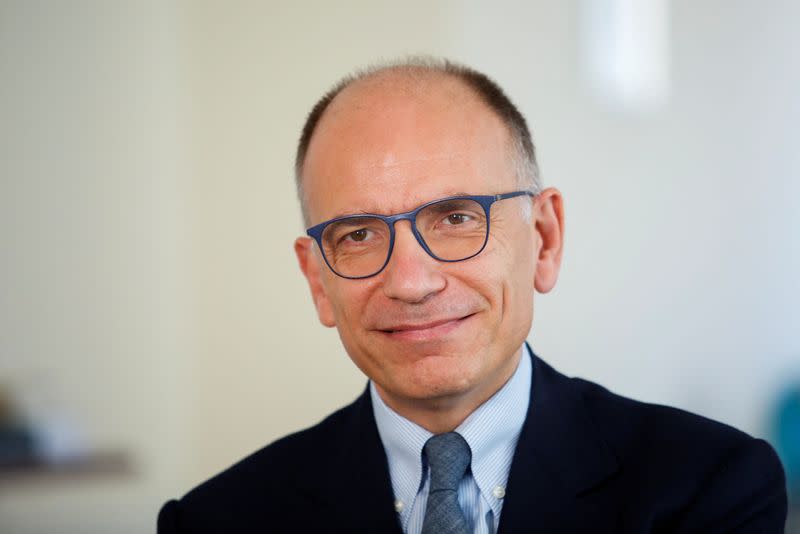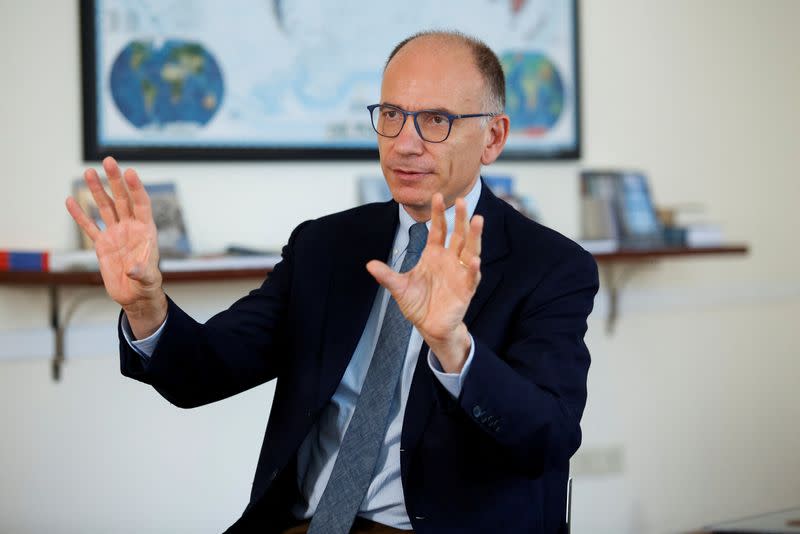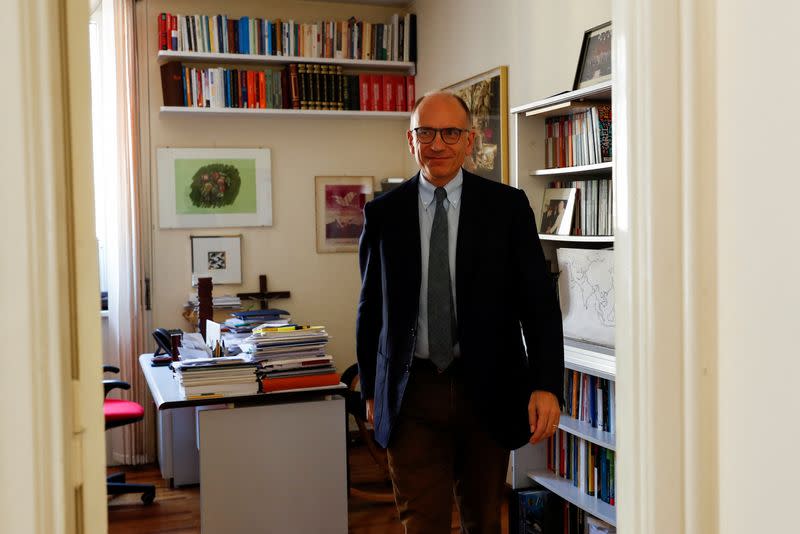Russia poses threat to Italian election, says centre-left chief
- Oops!Something went wrong.Please try again later.
- Oops!Something went wrong.Please try again later.
- Oops!Something went wrong.Please try again later.
By Giselda Vagnoni and Crispian Balmer
ROME (Reuters) - Moscow could try to skew the forthcoming Italian national election by spreading fake news on social media to favour pro-Russian parties, the head of Italy's centre-left Democratic Party (PD) said on Monday.
Enrico Letta, who is trailing a rightist alliance in the polls, said he wanted Italian intelligence agencies and the European Union's disinformation unit to monitor the two-month election campaign and prevent outside interference.
"I am launching this red alarm for the good of the country, but also for the good of Europe," Letta told Reuters from his Rome office where he is rushing to prepare for the snap vote that was called last week after the unexpected collapse of Prime Minister Mario Draghi's national unity government.
It was the first time that Letta highlighted his concern, although he did not give any evidence that Russia was planning to interfere. The Russian embassy in Rome did not immediately reply to an emailed request for a comment.
Two of Letta's main opponents, Forza Italia and the League, have traditionally had close ties with Russian President Vladimir Putin. Their respective leaders, Silvio Berlusconi and Matteo Salvini, have condemned his invasion of Ukraine, but they have also questioned why the West should send arms to Kyiv.
"I know very well that Salvini and Berlusconi are on a completely different track ... this is why I am afraid of the Russian approach to this electoral campaign," said Letta, 55, who was Italian prime minister from 2013-2014.
The League declined to comment. There was no immediate response from Berlusconi's Forza Italia party.
There were accusations of Russian meddling via social media in past elections, but Italian intelligence agencies have previously played down the threat.
FAR-RIGHT WORRY
Opinion polls suggest the conservative bloc, including Forza Italia, the League and the far-right Brothers of Italy, will win the Sept. 25 election.
The Brothers of Italy, which unlike its allies, has adopted an unequivocal, pro-Ukrainian line, is predicted to win almost 24% of the vote, making it the most popular party in the country ahead of the PD on 22.5%.
The group traces its roots back to a neo-fascist group, but it has become more mainstream under its leader Giorgia Meloni. However, the party retains vestiges of its hard-right past and critics say European Union allies should be worried by its rise.
Letta, who speaks fluent English and French, said that if the traditionally eurosceptic right took power, Rome would quickly find itself at odds with the EU - a sharp contrast to the warm ties that flourished during Draghi's rule.
"I think a victory of the right today would bring Italy into a completely different direction to the one we had with Draghi. It would mean ... conflicts with Europe," he said.
He said he could dot his campaign speeches with warnings of a return to fascism, but said he would stand a better chance of winning by promoting his own manifesto.
The PD would focus on battling climate change, defending civil rights, such as easing citizenship laws for migrants, and pushing social issues, such as the introduction of a minimum wage.
The populist 5-Star Movement is likely to focus on similar areas, but Letta ruled out any electoral pact with the group because of the role it played in bringing down Draghi, refusing to back him in consecutive confidence motions.
However, Italy's electoral law favours parties that are able to forge alliances and Letta said he would seek tie ups with all parties that had remained loyal to Draghi -- including Italia Viva, headed by Matteo Renzi, who unseated Letta in 2014.
"I am not posing any vetoes," Letta said, adding that Italians would face a simple choice.
"On Sept. 25 there will be two options, the right or us. I don't think there will be a third way," he said.
(Editing by Tomasz Janowski)



